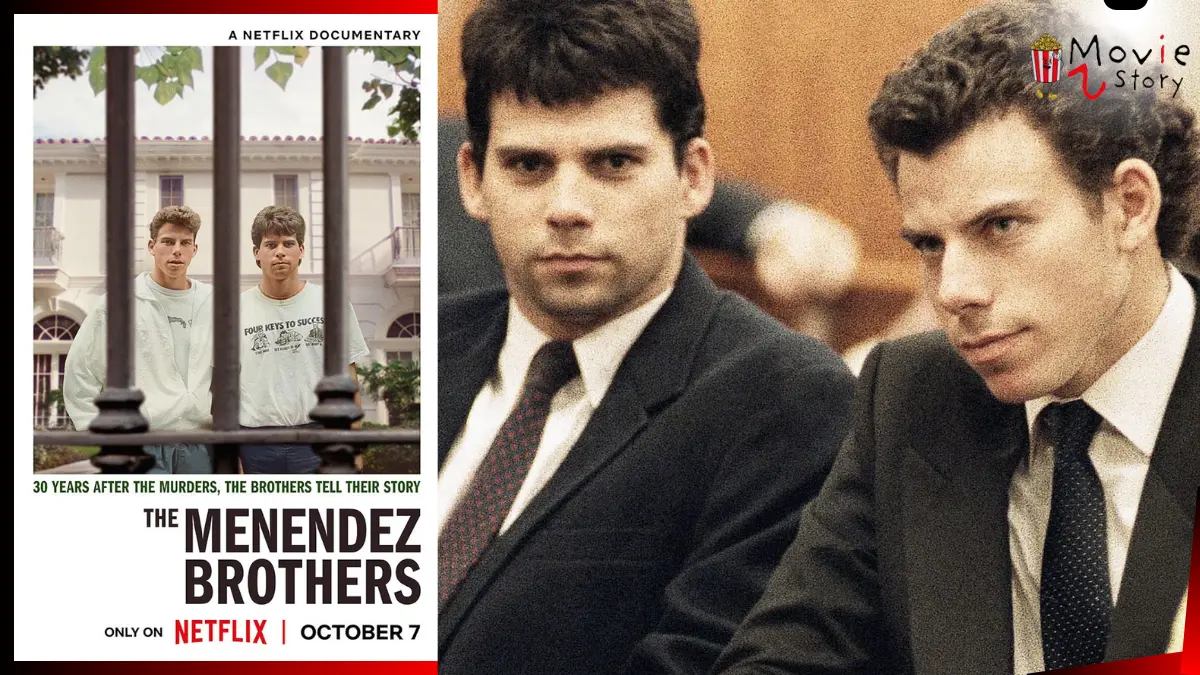The Menendez Brothers Movie Story 2024 : The Menendez Brothers (2024) is a gripping documentary that delves deep into one of America’s most infamous criminal cases. Directed by Alejandro Hartmann, the film offers an unflinching examination of the lives of Lyle and Erik Menendez, who were convicted of murdering their parents, José and Kitty Menendez, in 1989. This documentary distinguishes itself from previous dramatizations by providing firsthand accounts from the brothers themselves, alongside perspectives from key individuals involved in the case. As Netflix’s new release, it quickly soared to the top of the platform’s global charts, capturing the attention of millions worldwide.
The Menendez Brothers Official Trailer
Prologue: Setting the Stage
The documentary opens with archival footage from the late 1980s, showcasing the opulent lifestyle of the Menendez family in Beverly Hills. José Menendez is portrayed as a successful businessman, while Kitty Menendez is depicted as a dedicated mother. The serene facade of their Mediterranean-style mansion masks the underlying tensions that would culminate in the tragic murders of August 20, 1989.
The Tranquil Beginning
The Menendez Family
The film introduces the Menendez family, highlighting the stark contrasts between José’s demanding career and Kitty’s nurturing role. Despite their affluence, the documentary subtly hints at the strained relationships within the household. Interviews with family friends and acquaintances paint a picture of a family that, while outwardly perfect, harbored deep-seated conflicts and unspoken grievances.
The Brothers: Lyle and Erik
Lyle (21) and Erik (18) Menendez are introduced as typical privileged teenagers, navigating the complexities of adolescence in a high-pressure environment. The documentary explores their close bond, fostered by shared experiences and mutual reliance. However, beneath the surface, both brothers grapple with personal struggles and the overwhelming expectations placed upon them.
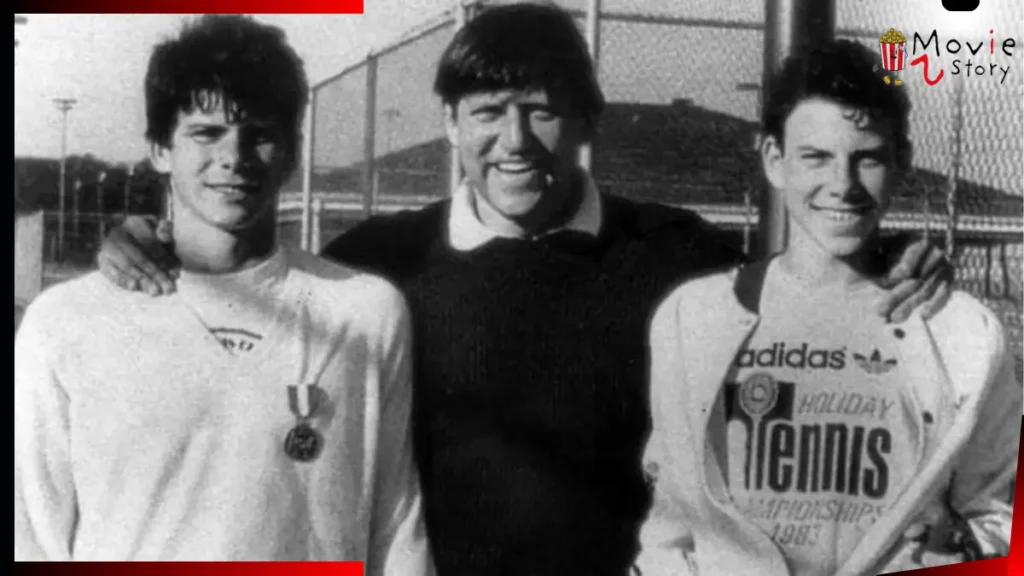
The Catalyst for Tragedy
Allegations of Abuse
Central to the documentary are the brothers’ claims of extensive abuse at the hands of their father, José. Through emotional interviews conducted in prison, Erik and Lyle recount instances of physical, sexual, and emotional abuse that began in Erik’s early childhood. These harrowing testimonies provide a stark contrast to the affluent image the family presented to the world.
Kitty’s Role
Kitty Menendez is depicted not merely as a passive bystander but as an active participant in the household’s dysfunction. The brothers allege that she was emotionally abusive and complicit in their father’s abusive behavior, failing to protect them from José’s brutality. The documentary juxtaposes these claims with interviews from other family members and acquaintances, some of whom support and others who challenge these allegations.
The Murders
The Fateful Night
The narrative shifts to the night of August 20, 1989, when Lyle and Erik brutally murdered their parents. The documentary meticulously reconstructs the events leading up to the killings, utilizing courtroom footage, forensic reports, and personal accounts. The brothers’ calculated actions—using multiple shotgun blasts to ensure the deaths of both parents and attempting to stage the scene as a robbery—are presented with chilling detail.
Immediate Aftermath
In the aftermath of the murders, the brothers maintain an air of normalcy, attending a movie shortly after the killings. This calculated attempt to divert suspicion underscores their initial intent to conceal their motives. The documentary explores the psychological turmoil the brothers faced, hinting at the complex interplay of fear, desperation, and perceived necessity that drove them to commit such an act.
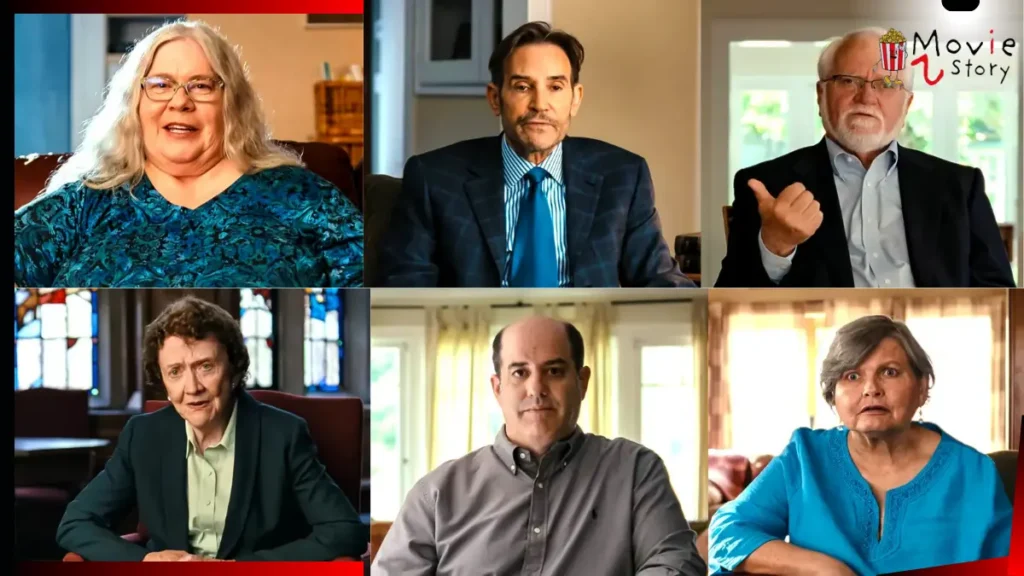
The Investigation and Arrest
The Investigation Begins
Detectives initially struggle to find a clear motive behind the murders. The brothers’ affluent lifestyle and apparent lack of financial strain lead investigators to dismiss the possibility of greed as a motive. However, as inconsistencies in the brothers’ alibis emerge, suspicion begins to mount.
Cracking Under Pressure
The documentary highlights a pivotal moment when Erik confides in his psychologist about the abuse, only for the psychologist’s girlfriend to betray their confidence. This breach of trust leads to the brothers’ arrest in 1990. The ensuing media frenzy is portrayed through a barrage of sensational headlines, late-night comedy sketches, and relentless tabloid coverage that vilify the brothers as heartless, greedy individuals.
The Trials
The First Trial: Mistrial
The first trial, beginning in 1994, becomes a national spectacle as the Menendez brothers’ defense team introduces evidence of alleged abuse to justify the murders as “imperfect self-defense.” The courtroom drama is intensified by emotional testimonies from Erik and Lyle, who describe the torment they endured. Despite these compelling narratives, the jury is unable to reach a unanimous verdict, resulting in a mistrial.
Public Opinion and Media Influence
The documentary delves into the role of the media in shaping public perception. Sensationalist reporting and mockery from comedians contribute to a polarized public opinion, with many viewing the brothers as privileged teenagers who murdered their parents for inheritance. The lack of empathy for male victims of abuse during the early 1990s is critiqued, highlighting societal biases that influenced the trial’s outcome.
The Second Trial: Conviction
A second trial is held in 1996, with heightened scrutiny and a more prepared prosecution team. This time, the jury finds Lyle and Erik guilty of first-degree murder and conspiracy to commit murder, sentencing them to life in prison without the possibility of parole. The documentary examines the legal strategies employed by both the defense and prosecution, illustrating the complex interplay of justice, perception, and societal norms.
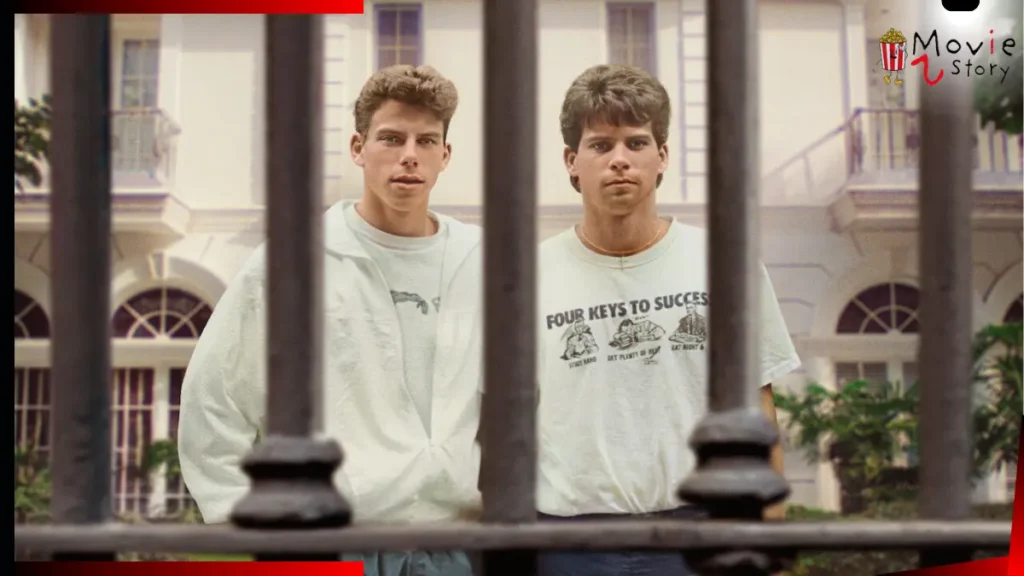
Post-Trial Lives
Life in Prison
The brothers’ lives behind bars are explored through exclusive interviews, revealing the psychological scars left by their actions and the relentless media attention. The documentary provides a stark contrast between their privileged upbringing and their current confined existence, emphasizing themes of lost innocence and the enduring impact of trauma.
Ongoing Legal Battles and Public Opinion
Despite their convictions, Lyle and Erik continue to fight for their narrative, seeking to overturn their sentences and gain a fair reevaluation of their cases. The documentary covers recent developments, including Los Angeles County District Attorney George Gascón’s decision to review new evidence, and the shifting public opinion in the wake of the #MeToo movement, which has prompted a reevaluation of the brothers’ abuse claims.
Netflix’s Dual Narrative
Monsters: The Menendez Brothers Movie Story
Prior to the documentary, Ryan Murphy’s Monsters: The Menendez Brothers Movie Story dramatized the brothers’ story, garnering high viewership but also significant controversy. Critics pointed out the series’ inaccuracies, particularly its portrayal of an incestuous relationship between the brothers, which Erik Menendez vehemently denied. The documentary contrasts these dramatized elements with the brothers’ own accounts, emphasizing the importance of factual accuracy over sensationalism.
The Menendez Brothers Documentary: A Counter-Narrative
Alejandro Hartmann’s documentary serves as a counter-narrative to Murphy’s dramatization. By featuring direct interviews with Lyle and Erik, as well as testimonies from family members, lawyers, jurors, and journalists, the film strives to present a more balanced and nuanced portrayal of the events. The documentary’s focus on firsthand accounts and real media footage aims to provide viewers with a deeper understanding of the complexities surrounding the case.
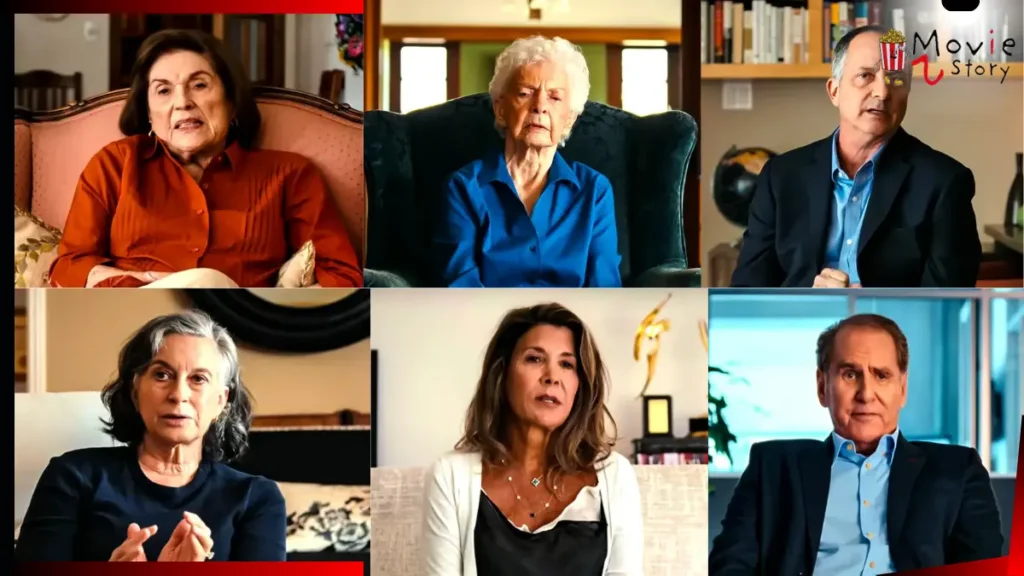
Analyzing the Documentary’s Impact
Reception and Success
The Menendez Brothers documentary quickly rose to the top of Netflix’s Global Top 10 films, amassing 22.7 million views and 44.7 million hours viewed in the week of October 7-13. Its success is attributed to strategic content synergy by Netflix, which released the documentary shortly after the controversial dramatization, capitalizing on the heightened public interest in the case.
Critical Perspectives
While the documentary has been lauded for its comprehensive approach, it has also faced criticism for potential bias, given that it prominently features the brothers’ own narratives. Some critics argue that this focus risks presenting a one-sided view, though the inclusion of diverse perspectives from other stakeholders in the case attempts to mitigate this concern.
Societal Reflections
The film prompts viewers to reflect on broader societal issues, such as the treatment of male victims of abuse, the influence of media on public perception, and the complexities of the justice system. It challenges audiences to reconsider their preconceived notions about the Menendez brothers and the factors that led to the tragic murders.
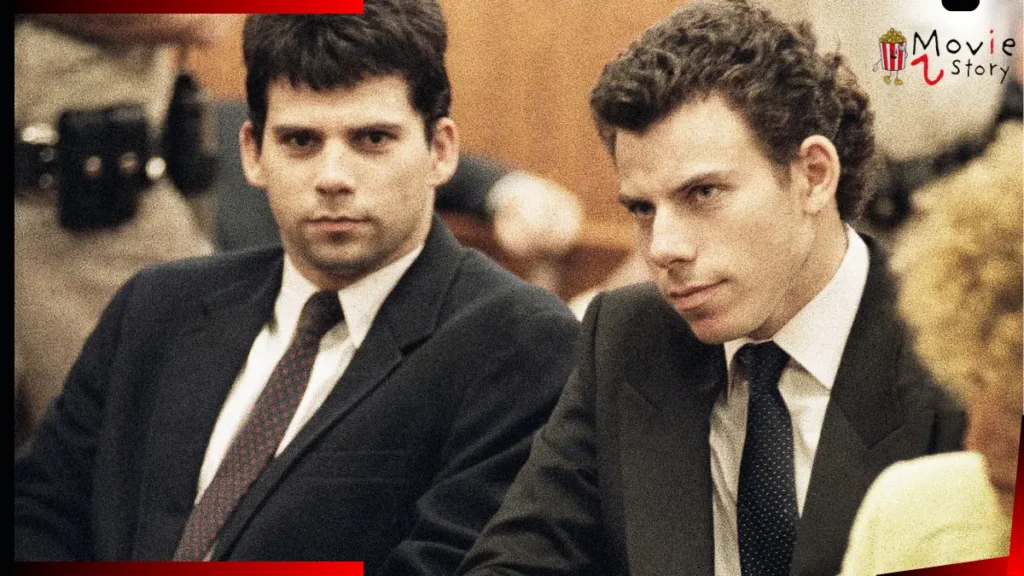
Behind the Scenes
Director Alejandro Hartmann’s Vision
Alejandro Hartmann discusses his motivation for creating the documentary, emphasizing the importance of giving Lyle and Erik a platform to share their side of the story. He aims to provide a more empathetic and comprehensive view of the brothers’ experiences, moving beyond the tabloid sensationalism that previously dominated their narrative.
Production Challenges
The documentary faced numerous challenges, including gaining access to exclusive interviews within the prison system and navigating the sensitive nature of the subject matter. Hartmann’s commitment to authenticity and depth required meticulous research and careful storytelling to balance the emotional weight of the brothers’ testimonies with factual accuracy.
Collaborations and Contributions
Key contributors to the documentary include Diane Vander Molen, a cousin of the brothers who offers a unique family perspective, and Pamela Bozanich, the lead prosecutor from the first trial, who provides insights into the legal proceedings and the prosecution’s stance. Their contributions add layers of complexity to the narrative, illustrating the multifaceted nature of the case.
The Real Story Unveiled
Dissecting the Escape Plan
One of the documentary’s pivotal moments is the analysis of the alleged escape plan depicted in Ryan Murphy’s dramatization. While the series portrayed an elaborate scheme involving plastic surgery and international flight, the documentary reveals that the “escape note” was a vague expression of the brothers’ desire to cope with their imprisonment rather than a concrete plan. This revelation underscores the disparity between dramatized fiction and real-life intentions.
Media’s Role in Shaping the Narrative
The documentary critically examines how media portrayal influenced public perception and, by extension, the trial’s outcome. The relentless focus on the brothers’ wealth and alleged greed overshadowed their abuse claims, leading to a largely negative public image. The film argues that this skewed representation hindered the fair assessment of their defense.
Shifting Perspectives in Modern Times
In the wake of movements like #MeToo, societal attitudes towards abuse, particularly male victimhood, have evolved. The documentary highlights how these shifts have led to a more sympathetic view of the brothers, prompting renewed interest in their case and the possibility of overturning their convictions. This contextual backdrop provides a lens through which the brothers’ actions and motivations are re-evaluated.
The Legal Reexamination
New Evidence and Legal Proceedings
The documentary covers recent developments, including the review of new evidence by Los Angeles County District Attorney George Gascón. This evidence includes letters from the brothers alleging molestation, which could potentially influence future legal outcomes. The film explores the implications of these revelations and the prospects for the brothers’ appeals.
The Role of Advocacy and Public Support
Public figures like Kim Kardashian, who advocate for criminal justice reform, play a significant role in bringing attention to the brothers’ case. The documentary features interviews with activists and supporters who believe that the Menendez brothers deserve a reexamination of their convictions, emphasizing the impact of advocacy on legal processes.
Personal Reflections and Closing Thoughts
The Brothers’ Reflections
Through intimate interviews, Erik and Lyle Menendez share their personal reflections on their lives, the murders, and the ensuing trials. Their candid admissions reveal the deep emotional and psychological toll of their actions and imprisonment. The documentary captures their longing for understanding and justice, adding a poignant human element to the narrative.
The Quest for Truth and Justice
The Menendez Brothers concludes with a meditation on truth and justice. It questions whether the legal system was capable of fully understanding and addressing the complexities of the brothers’ situation. The documentary leaves viewers pondering the broader implications of the case, including the challenges of seeking justice within a flawed system and the enduring impact of familial abuse.
Final Reflections
The film ends with a powerful statement on the nature of truth, the pursuit of justice, and the human capacity for both cruelty and compassion. It calls for a more nuanced understanding of such complex cases, urging society to look beyond surface-level judgments and consider the deeper factors that drive individuals to desperate actions.
Epilogue: Legacy and Continuing Relevance
Nearly three decades after the murders, The Menendez Brothers documentary remains a relevant and thought-provoking exploration of a case that continues to captivate and divide public opinion. By providing a platform for the brothers to share their story, the film contributes to an ongoing dialogue about abuse, justice, and the power of media in shaping narratives.
As the documentary garners acclaim for its in-depth and balanced approach, it sets a new standard for true crime storytelling, emphasizing the importance of multiple perspectives and the relentless pursuit of truth. The Menendez Brothers not only revisits a notorious crime but also invites viewers to engage with the enduring questions it raises about morality, accountability, and the human condition.
Conclusion – The Menendez Brothers Movie Story
The Menendez Brothers (2024) stands as a testament to the enduring complexity of true crime narratives. By intertwining personal testimonies, legal analysis, and media critique, Alejandro Hartmann crafts a documentary that transcends mere retelling, offering a profound exploration of one of America’s most controversial cases. Its success on Netflix underscores the public’s enduring fascination with the Menendez brothers, while also highlighting the importance of nuanced storytelling in understanding the multifaceted nature of human actions and the quest for justice. For More New Released USA Movie Stories Visit Movie2Story.
Latest Release USA Movie Stories:
- Lonely Planet Movie Story 2024: A Journey of Self-Discovery and Unexpected Love
- Deadpool & Wolverine Movie Story 2024: A Multiverse Super Adventure!
- Inside Out 2 Movie Story 2024: Riley’s Emotional Journey to Balance and Growth
- Little Bites Movie Story 2024: A Mother’s Desperate Battle Against the Demon
- The Problem With People Movie story 2024: Blockbuster Full Movie Story

